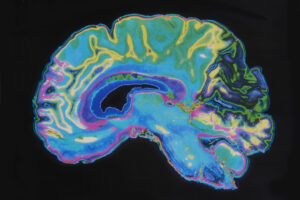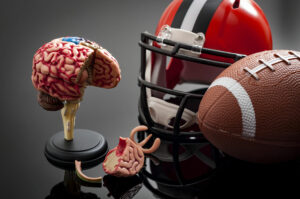Whack! You’ve had a sudden knock to the head and suddenly you find yourself in pain and in a fog. A trip to the emergency room and a few doctor visits later and it’s confirmed: you have a concussion or a mild traumatic brain injury (mTBI). Whether you got it playing a contact sport, whiplash from a car crash, or falling on a slippery sidewalk, dealing with a concussion can be an ordeal. But with proper diagnosis and treatment, you can recover and get back to your regular routine.
Concussions are usually caused by a direct or indirect hit to the head. This trauma leads to internal bleeding, bruising, fluid build-up, tissue damage, or increased pressure on your brain. Some concussions can lead to cognitive, physical, or emotional problems. You may find it hard to concentrate or feel in a fog. You may experience headaches, tiredness, dizziness, and memory loss. The symptoms will vary according to your specific injury and so too will the treatment. That’s why the first thing to do is to seek immediate medical help. An early diagnosis and treatment plan can optimize your recovery.
A concussion can have serious repercussions in the short and long term. This is why any concussion should be taken seriously. It’s also why so much attention is given to athletes who have suffered a concussion. From professional leagues to school teams, athletes, coaches, teachers, parents, and the general public take concussions much more seriously than in the past. You should, too.
Concussion Recovery
The first step is to seek and follow medical advice. That means slowing things down, resting, and taking it easy for a bit. Returning too quickly to your regular activity can prolong or worsen your symptoms.
Research on concussions is evolving and we learn more and more with each breakthrough. Aside from following doctor’s orders, here are some things you can do to improve your recovery:
- Rest up and take care of your early symptoms—cut out heavy activities, work, school, and make sure to get lots of sleep
- Take care of your nutritional needs—brains need healthy diets and hydration to heal
- When ready, take on some light activities (like walking) or chores to keep your body and mind in shape
- Ease back into your regular routine—recovery takes time
- Be patient and don’t try to rush your recovery—a healing brain works on its own schedule, not yours
You should also discuss your concussion with your family and employer. You’re going to have to rely on loved ones for physical and emotional support and most employers offer programs, benefits, or allowances to help with employees who have been injured. Talk to them and get the help you need to ensure a full recovery.
For more information
- Concussion FAQs, Parachute Canada
- Concussion (Traumatic Brain Injury) symptoms, causes, and treatment, WebMD
- Sidney Crosby incident just the latest sign the NHL’s concussion protocols are a flimsy mess, National Post
If you or someone you know has suffered a serious head injury as a result of a crash, accident, or someone’s negligence, you have rights. Contact us today to discuss how our team can help you get on the path to recovery.







